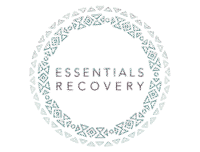Recovery from addiction is not a straight path—it’s a journey full of progress, setbacks, learning, and growth. One of the most essential elements in maintaining long-term sobriety is having a well-structured relapse prevention strategy. A solid plan doesn’t just focus on avoiding relapse but instead builds the emotional and psychological resilience needed to face life’s challenges without turning back to substance use. Understanding how to prevent relapse while strengthening inner resolve can help people in recovery feel empowered and secure in their sobriety.
What Is Relapse and Why Does It Happen?
Relapse is the return to substance use after a period of abstinence. While it’s common and not a sign of failure, understanding its causes is vital. Relapse often occurs when someone is overwhelmed by stress, emotional pain, or social triggers. These may include unresolved trauma, relationship conflict, boredom, or feelings of hopelessness. Sometimes, relapse can be triggered by overconfidence—a belief that one is “cured” and no longer needs to follow the recovery plan. Recognizing these risks helps people stay alert and proactive.
Resilience: The Backbone of Recovery
Resilience refers to a person’s ability to bounce back from stress, adversity, or trauma. In recovery, resilience enables individuals to respond to tough times without reverting to harmful behaviors. Resilience isn’t something you’re born with—it’s something you can build. By cultivating emotional strength, learning healthy coping mechanisms, and surrounding yourself with support, you develop the ability to manage life without relying on substances. Resilience helps you not only prevent relapse but also recover quickly if it happens.
Recognizing High-Risk Situations
A strategic relapse prevention plan begins with identifying high-risk situations. These are scenarios that have historically led to substance use or are likely to cause cravings or distress. High-risk situations may include:
- Attending social events where alcohol or drugs are present
- Experiencing strong emotions like anger, sadness, or anxiety
- Being around old using friends
- Feeling isolated or unsupported
By identifying these scenarios ahead of time, individuals can develop coping responses. For example, someone might bring a sober friend to an event, practice calming exercises during emotional moments, or plan to leave a triggering situation early.
Building a Relapse Prevention Plan
A relapse prevention plan is a written guide that outlines the steps a person will take to avoid returning to substance use. It includes personal triggers, warning signs, coping tools, emergency contacts, and motivational goals. This plan should be discussed and updated with a counselor or support group regularly. Having a concrete plan in place provides a sense of control and helps reduce panic during moments of vulnerability.
A good plan also includes daily routines and healthy habits. Structure helps minimize impulsivity and keeps the brain focused on stability. Morning rituals, exercise, healthy meals, attending meetings, journaling, and bedtime routines all play a part in maintaining balance.
Strengthening Emotional Regulation Skills
One of the biggest factors in relapse is emotional dysregulation—feeling overwhelmed by emotions without the tools to handle them. To build emotional resilience, people in recovery benefit from practicing mindfulness, meditation, breathing exercises, and journaling. These tools can calm the nervous system and help people process feelings without becoming consumed by them.
Therapies like cognitive behavioral therapy (CBT) and dialectical behavior therapy (DBT) are also effective in teaching emotional regulation. These approaches help people examine harmful thought patterns and develop healthier responses. With practice, people become more aware of their emotional states and can intervene before feelings spiral into cravings.
The Role of Social Support
Resilience is often strengthened through connection. Humans are social creatures, and being part of a support network has a powerful protective effect against relapse. Support can come from family, friends, recovery peers, sponsors, and professionals. Having someone to talk to during hard moments can break the cycle of isolation and prevent impulsive decisions.
Recovery groups like Alcoholics Anonymous (AA), Narcotics Anonymous (NA), SMART Recovery, or faith-based programs offer regular encouragement and accountability. Group settings remind individuals that they’re not alone and give them a safe space to share struggles and celebrate victories.
Learning from Setbacks
It’s important to acknowledge that relapse is not the end of recovery. Instead of feeling ashamed or defeated, individuals can view it as a valuable learning experience. By examining what led to the relapse, what emotions or circumstances were present, and what could have been done differently, individuals gain insight and adjust their prevention strategies.
This process strengthens resilience by showing that even in the face of setbacks, growth is possible. It reinforces that recovery is a journey, not a race, and that commitment and self-compassion matter more than perfection.
Creating Healthy Distractions and Hobbies
Idle time can become a breeding ground for cravings and negative thinking. Filling your life with meaningful activities not only reduces relapse risk but also brings joy and fulfillment. Engaging in hobbies like painting, sports, music, gardening, or volunteering allows individuals to express themselves and find purpose beyond addiction.
Creative outlets and physical movement also help reduce stress and improve mental health. Recovery becomes more sustainable when life is filled with things to look forward to and ways to stay engaged.
Practicing Gratitude and Positive Thinking
Focusing on the positive aspects of life builds mental resilience and supports long-term recovery. Gratitude journaling—writing down things you’re thankful for each day—can shift your mindset and highlight progress even in difficult times.
Affirmations and positive self-talk are also effective tools. They help reframe negative beliefs like “I’m not strong enough” into “I’m learning and growing every day.” By changing internal dialogue, individuals develop a stronger sense of hope and capability.
Staying Committed with Long-Term Goals
Setting and reviewing long-term goals is a vital part of staying motivated in recovery. Whether it’s rebuilding relationships, going back to school, improving physical health, or achieving financial independence, these goals act as beacons. They remind individuals why they chose sobriety and help keep daily choices aligned with their vision for the future.
Small, short-term goals help make the bigger picture feel manageable. Celebrate progress often and adjust goals as needed to reflect your growth and changing desires.
Working with Professionals
Professional guidance adds structure and support to a relapse prevention plan. Counselors, therapists, and recovery coaches can help explore underlying issues, develop coping tools, and provide nonjudgmental accountability. In times of crisis, having access to professionals can mean the difference between staying on track or slipping into old habits.
Medical professionals can also assist in cases of dual diagnosis, where substance use coexists with mental health conditions like depression, anxiety, or PTSD. Treating both conditions together improves overall resilience and prevents relapse.
Staying Vigilant: Recovery Is a Lifelong Process
Recovery doesn’t end after detox or completing a treatment program—it requires ongoing effort and awareness. Even after years of sobriety, new challenges may arise that test your resilience. Maintaining a proactive attitude and staying connected to your support system helps you stay grounded.
Regularly reviewing your relapse prevention plan, staying up to date with therapy or meetings, and continuing self-reflection ensures you’re always prepared. The more consistent you are with your recovery tools, the stronger and more confident you become.
Conclusion: Thriving, Not Just Surviving
Building resilience through strategic relapse prevention is not about living in fear of making a mistake. It’s about developing the strength, awareness, and tools to live a life of freedom, balance, and joy. With the right mindset and support, individuals can turn recovery into a time of growth and transformation.
By staying mindful, connected, and purposeful, people in recovery can navigate life’s inevitable ups and downs without falling back on substances. Relapse prevention is more than a plan—it’s a lifestyle rooted in hope, strength, and the belief that lasting change is always within reach. Call us today at 855-509-1697.



